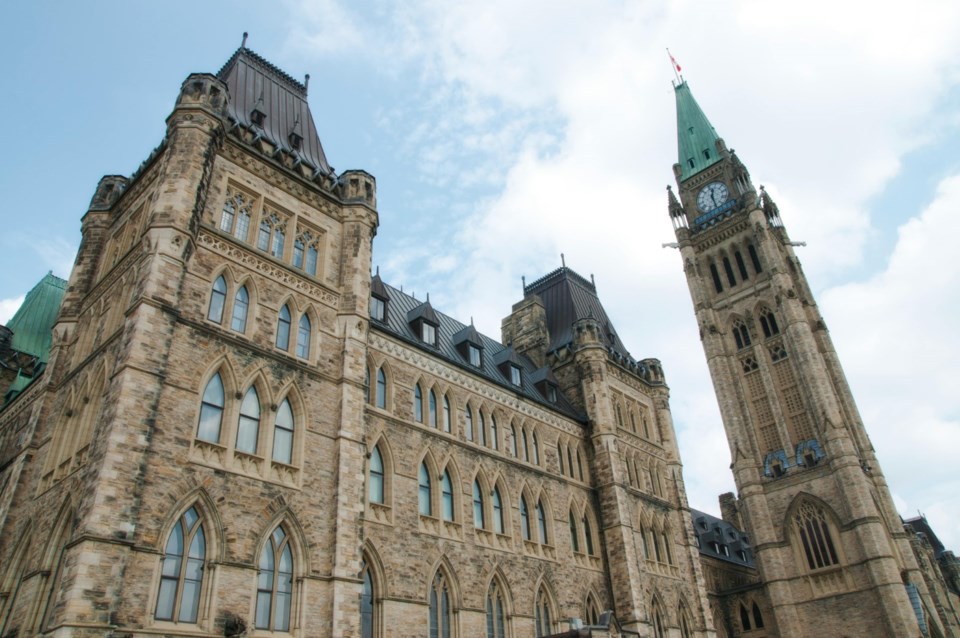The Trudeau government’s use of the Emergencies Act during the Freedom Convoy protests in early 2022 was a chilling abuse of power unprecedented in modern Canadian history. This law, designed for actual national crises such as war or catastrophic disasters, was instead wielded to silence peaceful dissent.
The move wasn’t just an overreach – it was a direct attack on democracy itself.
Last January, Federal Court Judge Richard Mosley ruled that the government’s invocation of the Emergencies Act was unlawful, a fundamental attack on rights and freedoms. His decision utterly dismantled the federal government’s contention that its use of the Act met the necessary tests for a national emergency. His ruling is a scathing indictment of the Trudeau government’s actions and a stark reminder of the fragility of democratic principles when subjected to political expediency.
Ray McGinnis’s book, Unjustified, rips apart the official narrative that tried to justify this authoritarian measure. It exposes how fear-mongering, a pliant media, and the failure of our institutions created the conditions for this debacle. The events surrounding the convoy demand a hard look at how far Canada has strayed from its democratic principles – and whether we have the courage to fix it.
The Trudeau government didn’t merely mismanage the protests; it deliberately weaponized fear. Protesters were branded white supremacists, misogynists, and extremists in a concerted smear campaign that had no basis in fact. Ministers like Marco Mendicino and even Prime Minister Justin Trudeau himself made incendiary claims, suggesting protesters were a danger to national security despite evidence to the contrary.
The result? Bank accounts were frozen, a measure usually reserved for terrorists, and families were left without access to their savings. The narrative reached absurd levels, with media reports amplifying unfounded allegations of arson and Nazi sympathies. But when the Public Order Emergency Commission examined these claims, police testimony confirmed there was no violence – no riots, no criminal uprisings.
Why, then, were Canadians told otherwise? Fear is an effective tool to silence dissent. When governments manipulate fear, they erode public trust and chip away at democracy itself.
The Emergencies Act invocation wasn’t just a failure of governance – it was a failure of Canada’s democratic institutions. Parliament rubber-stamped the government’s overreach, betraying its duty to protect Canadians’ freedoms. The judiciary has remained silent or complicit, even as trials like those of Tamara Lich and Chris Barber drag on with accusations of “mischief” being treated as major crimes.
And then there’s the media. Once trusted to challenge power, Canada’s legacy media has become little more than an echo chamber for government propaganda. It’s no coincidence that more than 2,000 media outlets are now funded, in part, by the federal government. Outlets like the CBC, which receives $1.2 billion annually from taxpayers, have repeatedly failed to scrutinize the government’s actions.
This isn’t journalism – it’s state-sponsored narrative management. Independent reporting is left to citizen journalists and a handful of alternative platforms, which are increasingly under attack from government legislation like Bill C-11, designed to control online content.
The Emergencies Act debacle isn’t just a cautionary tale – it’s a call to arms for anyone who cares about this country. Canadians cannot afford to be passive. Our democracy depends on citizens who are willing to act.
Write your MPs and demand accountability for the overreach that led to the freezing of bank accounts and the criminalization of peaceful protest. Support independent journalism that tells the truth, not the government’s version of it. And most importantly, demand that those responsible for abusing the Emergencies Act face consequences.
This is not a partisan issue; it’s a Canadian one. If we allow governments to wield fear as a weapon, to manipulate institutions, and to crush dissent, we are on a dark path toward authoritarianism.
As McGinnis’s book makes clear, the Freedom Convoy was not a national crisis. It was a government-manufactured one. The real emergency isn’t the protest – it’s the erosion of democracy in Canada.
The good news is that Canadians have the power to turn the tide. From grassroots activism to independent reporting, there are signs of hope. Citizen journalists are exposing truths the legacy media refuses to report. Legal challenges from organizations like the Democracy Fund and the Justice Centre for Constitutional Freedoms are pushing back against government overreach.
But hope alone won’t save Canada. Only action will. This is a moment to decide who we are as a country. Will we accept the narrative handed to us, or will we demand the truth? Will we stay silent, or will we fight for our rights?
The answer to those questions will determine Canada’s future. The time to act is now.
David Leis is President and CEO of the Frontier Centre for Public Policy and host of the Leaders on the Frontier podcast.
The commentaries offered on SaskToday.ca are intended to provide thought-provoking material for our readers. The opinions expressed are those of the authors. Contributors' articles or letters do not necessarily reflect the opinion of any SaskToday.ca staff.




